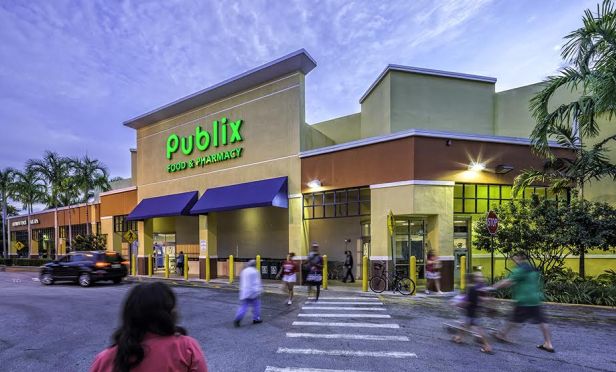
MIAMI—Florida is home to many iconic and even historic buildings. Could these buildings fuel retail revitalizations? It's possible, given what we're seeing in North Florida.
GlobeSt.com caught up with retailer/landlord representation brokers leading Franklin Street's North Florida retail division to talk about the retail climate in North Florida. Managing director Carrie Smith and director of leasing Whitney Kantor sound off in part one of this exclusive interview series.
GlobeSt.com: What do you see happening on the retail horizon in Jacksonville and North Florida?
Smith: The biggest impact we predict is the amount of retail space that will hit Jacksonville in by the end of 2017. Construction is underway for several large-scale projects, including Town Center Promenade and The Strand at Town Center, and these projects will be delivered with tenants opening next year. In addition, we'll see Ikea open, which should spur even more development in and around the Gate Parkway and Interstate 295 corridor.
Kantor: Jacksonville's economic growth continues in a positive direction especially on the retail front. As a city, we are simultaneously improving and safe-guarding growth through road and interstate improvements such as the ones being done on the Fuller Warren Bridge.
These improvements not only facilitate the flow of traffic but also incorporate shared-use paths dedicated to pedestrians and bicyclists. The Overland Bridge Project also includes components like bike lanes and beautification improvements. Infrastructure enhancements are critical to creating accessible, walkable and inviting environments that retailers and restaurateurs look for when choosing locations and cites in which to expand. (Get some new retail insights for 2017).
GlobeSt.com: What is driving the new and exciting retail trends in Jacksonville?
Kantor: We continue to see historic buildings repurposed with the growth of neighborhoods driving this trend. The inclusion of San Marco in a Florida J-Bill will allow smaller restaurants in commercial corridors to provide a full bar instead of just beer and wine. Today, the mandatory 150-seat requirement for a liquor license hinders businesses from pursuing smaller existing and sometimes historic areas for restaurants. (Check out this retail trend.)
We are also seeing residents of communities come together, such as the Downtown Dweller Group, to be the voice of neighborhoods and to fill the roles similar to what Riverside Avondale Preservation (RAP) and San Marco Preservation Society (SMPS), and to some extent even the homeowners associations in suburban areas.

MIAMI—Florida is home to many iconic and even historic buildings. Could these buildings fuel retail revitalizations? It's possible, given what we're seeing in North Florida.
GlobeSt.com caught up with retailer/landlord representation brokers leading Franklin Street's North Florida retail division to talk about the retail climate in North Florida. Managing director Carrie Smith and director of leasing Whitney Kantor sound off in part one of this exclusive interview series.
GlobeSt.com: What do you see happening on the retail horizon in Jacksonville and North Florida?
Smith: The biggest impact we predict is the amount of retail space that will hit Jacksonville in by the end of 2017. Construction is underway for several large-scale projects, including Town Center Promenade and The Strand at Town Center, and these projects will be delivered with tenants opening next year. In addition, we'll see Ikea open, which should spur even more development in and around the Gate Parkway and Interstate 295 corridor.
Kantor: Jacksonville's economic growth continues in a positive direction especially on the retail front. As a city, we are simultaneously improving and safe-guarding growth through road and interstate improvements such as the ones being done on the Fuller Warren Bridge.
These improvements not only facilitate the flow of traffic but also incorporate shared-use paths dedicated to pedestrians and bicyclists. The Overland Bridge Project also includes components like bike lanes and beautification improvements. Infrastructure enhancements are critical to creating accessible, walkable and inviting environments that retailers and restaurateurs look for when choosing locations and cites in which to expand. (Get some new retail insights for 2017).
GlobeSt.com: What is driving the new and exciting retail trends in Jacksonville?
Kantor: We continue to see historic buildings repurposed with the growth of neighborhoods driving this trend. The inclusion of San Marco in a Florida J-Bill will allow smaller restaurants in commercial corridors to provide a full bar instead of just beer and wine. Today, the mandatory 150-seat requirement for a liquor license hinders businesses from pursuing smaller existing and sometimes historic areas for restaurants. (Check out this retail trend.)
We are also seeing residents of communities come together, such as the Downtown Dweller Group, to be the voice of neighborhoods and to fill the roles similar to what Riverside Avondale Preservation (RAP) and San Marco Preservation Society (SMPS), and to some extent even the homeowners associations in suburban areas.
Want to continue reading?
Become a Free ALM Digital Reader.
Once you are an ALM Digital Member, you’ll receive:
- Breaking commercial real estate news and analysis, on-site and via our newsletters and custom alerts
- Educational webcasts, white papers, and ebooks from industry thought leaders
- Critical coverage of the property casualty insurance and financial advisory markets on our other ALM sites, PropertyCasualty360 and ThinkAdvisor
Already have an account? Sign In Now
*May exclude premium content© 2025 ALM Global, LLC, All Rights Reserved. Request academic re-use from www.copyright.com. All other uses, submit a request to [email protected]. For more information visit Asset & Logo Licensing.








